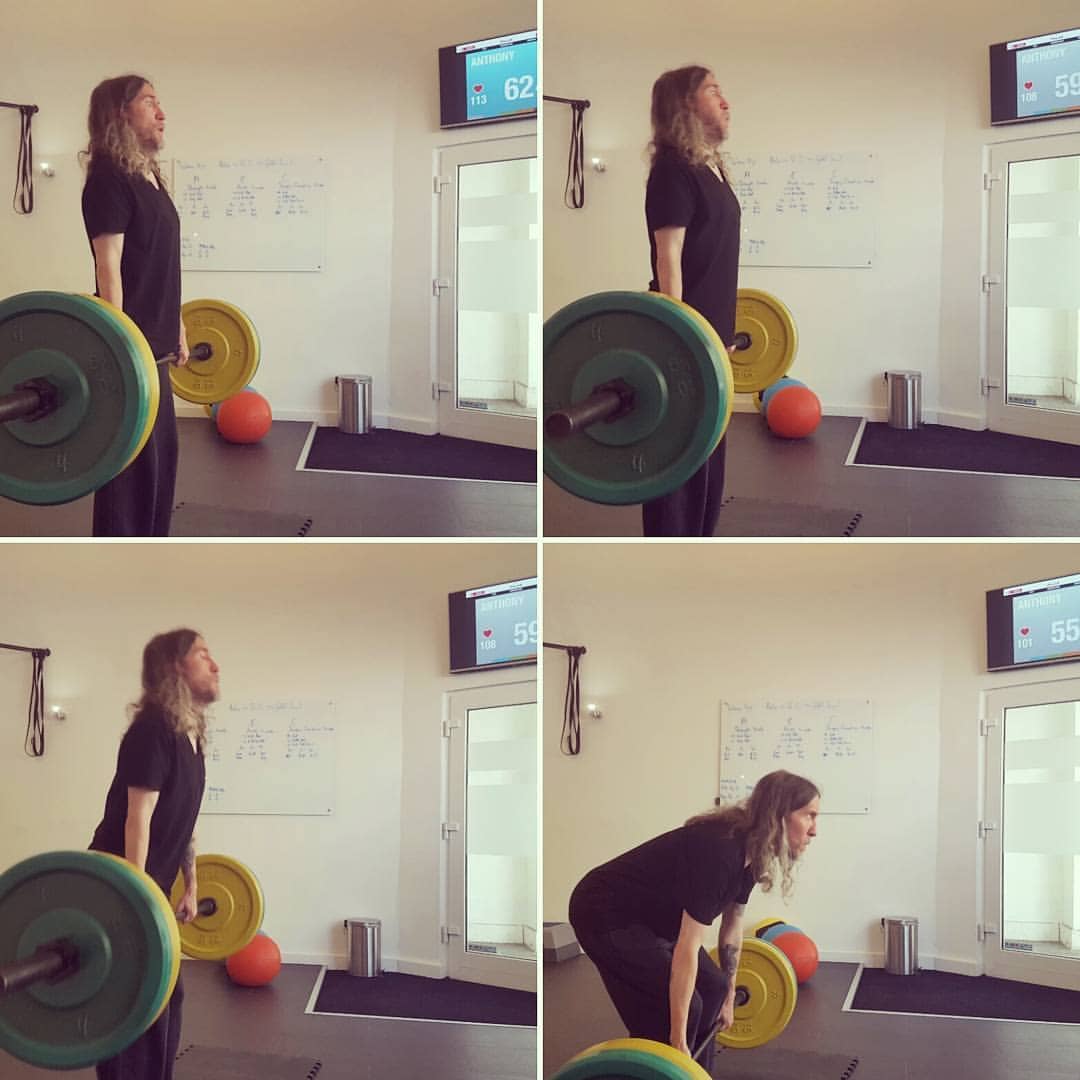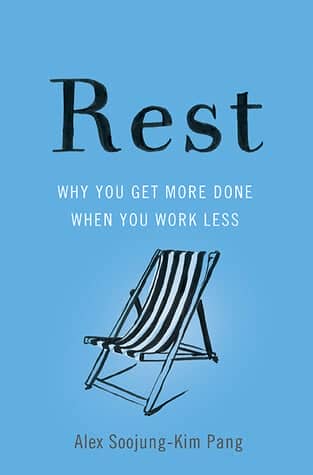Podcast: Download
Subscribe: Apple Podcasts | RSS
 Focused attention is…look a squirrel!
Focused attention is…look a squirrel!
Aren’t they the cutest?
Gotta get to the laundry.
Now, wait a minute…where was I?
Right! I was writing about focused attention.
It is usually the squirrel’s fault, but often deliberate use of focused attention is needed to do the task at hand or to know what’s happening around you.
So what is focused attention?
In this post, I’ll explain all about it plus give you five magnetic ways to improve your concentration abilities.
Here’s what I’ll cover on this page:
- What is Focused Attention?
- A Few Risky Examples Of Focused Attention
- Different Types of Attention
- What Happens if Your Focused Attention is Damaged?
- The Link Between Focused Attention and Stronger Memory
- 5 Ways to Strengthen Your Focused Attention (Once you have it)
What is Focused Attention?
Focused attention is the ability of your brain to concentrate on one activity for a specified period of time.
When you use focused attention, your brain allocates cognitive processing resources that allow you to choose and concentrate on one task at a time.
It is an essential skill that enables you to carry out different tasks in your daily lives with a high level of efficiency.
However, you need to understand that to pay attention to one stimulus or action, your brain, by default, ignores all other stimuli.
If every stimulus had to be perceived, we would go crazy.
For example, you are at a loud, crowded party, looking for your friend. You look for her blue sequined dress, and you concentrate on hearing her voice over the music. Your brain is continuously, moment by moment, ignoring the voices of other people to focus its attention on finding the voice of your friend.
And there she is! Calling out your name, which your mind was able to hear over the general uproar due to its use of focused attention.
A Few Risky Examples of Focused Attention
Imagine watching TV while cooking.
You are doing two things, but if your focus wanders away from the pot, you may burn your sauce or over boil the pasta.
On the other hand, when you are concentrating on cooking, you may miss the next Kardashian scandal.
In effect:
Your brain uses focused attention to do one task at a time.
If you try to multitask, your performance levels would be low for each task. For instance, it is not possible to try to study while watching TV and retaining the information presented by the book as well as the TV show accurately.

However, there is something called selective attention that you use when working from a noisy environment like a coffee shop.
How does that work?
A coffee shop is not a quiet place. There are customers ordering lattes, people exchanging gossip or speaking loudly on the phone. However, these levels of background noise are low enough for the mind to concentrate on the work at hand.
You use focused attention every single day, from when you clean up the table after dinner to when you pick up something that fell off the desk.
Before we move on, let’s take a brief deep dive into other types of attention.
What Are the Different Types of Attention?
The American philosopher and psychologist William James defines attention as “the taking possession by the mind, in clear and vivid form, of one out of what seem several simultaneously possible objects or trains of thought. Focalization, concentration, of consciousness are of its essence. It implies withdrawal from some things in order to deal effectively with others…” (The Principles of Psychology, 1890).
Attention is not a simple process. It is the beginning of other cognitive functions. You need to pay attention before you can comprehend something.
The Sohlberg and Mateer Hierarchical Model breaks attention into five sub-components.
The model was initially used to test the recovery and development of attentional function in long-term coma patients (after they were awake, of course). However, it was soon found to be useful in determining attentional skills in other people – including students, making this a popular model for the study of “attention”.
The sub-components of the Sohlberg and Mateer Hierarchical Model are:
- Focalized (Focused) Attention: This refers to your ability to focus attention on one stimulus. For example, when you are writing an exam and need to concentrate entirely on your answers.
- Sustained Attention: This is your ability to attend to an activity or stimulus over prolonged periods of time. For instance, when you are playing a video game.
- Selective Attention: This refers to your ability to focus on a specific stimulus in the presence of other distracting stimuli. For example, in a classroom, this would be a student’s ability to maintain focus on the lesson while his peers chatter or pass notes.
- Alternating Attention: Commonly known as multitasking. This is your ability to change focus attention between stimuli that need different cognitive functions. For example, reading a recipe while preparing a meal.
- Divided Attention: This refers to your brain’s ability to attend to different stimuli at the same time. For example, when you are driving a car while talking to a passenger.

As the cognitive science of attention evolved, it emerged that your ability to pay attention depends on various factors:
- It is easier to process a task correctly when you’re motivated and alert than sad or tired, or if the stimulus is monotonous. Anxiety also affects your ability to focus on a job.
- If a task is complex, your brain finds it more difficult to sustain focused attention on that particular task. It can get distracted easily.
- Your brain takes less effort to complete a routine task, but if the work is new or unfamiliar more effort is required.
Your cognitive abilities are affected by your levels of mindfulness when doing a task.
Knowledge of the cognitive science of attention improves our learning of the nuances that affect “attention”. It enables us to understand what processes are needed to function efficiently in our everyday environments and how to eliminate distractions that damage our attention capacities.
What Happens if Your Focused Attention is Damaged?
Getting distracted is common.
And losing focus or awareness of your surroundings when you are distracted is also usual.
However, if you get easily distracted or have trouble paying attention when conducting everyday tasks like reading a book, listening, writing, or even watching TV, it may be cause for concern.
Your focused attention can get damaged due to disease, disorder, or damage to some parts of the brain.
Hemispatial neglect or heminegligence is a common disorder that can cause loss of focused attention. Hemispatial neglect is a neuropsychological condition caused by damage to one hemisphere of the brain due to stroke or injury.
ADD Vs. ADHD And How They Degrade Attention
Another known disorder is Attention Deficit Disorder (ADD) or Attention Deficit Hyperactivity Disorder (ADHD), which majorly affects the attention of the individual, making it difficult for them to detect the target stimuli.
Usually, a continuous performance test (CPT) detects Attention Deficit Hyperactive Disorder (ADHD). However, researchers are now conducting studies to validate the usefulness of a continuous performance test in diagnosing ADHD in children.
Some kids with autism spectrum disorders (including Asperger’s syndrome) also show symptoms which are similar to learning and attention disorders. However, these two conditions are different and need different treatment.
Other disorders that affect focused attention include dementia, Alzheimer’s disease, and schizophrenia. But the good news is that memory training helps, such as one of students found when suffering yet another issue: PTSD.
The Link Between Focused Attention and Stronger Memory
Have you ever noticed how, when something is interesting, your focused attention is absolute?
For example, you can focus better when watching the World Cup as opposed to when you have to compile the 10-page sales report.
However, if your boss is waiting for the 10-page sales report, you would work on it despite all distractions to get it ready on time.
So you see, your attention span or focus can change depending on whether the stimulus is exciting (football match) or if the stakes are high (work deadline).
Which also brings to focus the fact that you can train yourself to do everyday tasks with a higher level of focused attention.
And as we all know…
Concentration or focus is the key to better memory recall.
Focused attention is essential to well-formed memories and useful recall of information. A lack of attention, on the other hand, leads to difficulty remembering crucial pieces of information.
By becoming more deliberate and paying attention to the task at hand, you can do it with far more efficiency.
What’s even better?
Everything you do to improve your focus will also improve your memory and awareness of your environment.
How can you improve your focused attention?
5 Ways to Strengthen Your Focused Attention
Focus is to memory, what a key is to a lock.
While you can force a lock, if you don’t have the key, it is always easier to open the door with the right set of keys.
By making a few simple changes in the way you work, you can dramatically improve your levels of focus and thereby your ability to remember information fast.
Here are five ways you can strengthen your focused attention:
1. Create Memory Palaces Regularly
Creating Memory Palaces using the Magnetic Memory Method way can quickly improve your attention span.
The Magnetic Memory Method Memory Palace approach teaches you how to pay focused attention when you come across new information.
When combined with Magnetic Recall Rehearsal, this holistic process lets you move information from your working memory into your long-term memory faster and with better permanence.
Memory Palaces also enhance your mindfulness and awareness, which are essential in improving focus.
This video gives you some great hacks to extend your attention span quickly.
2. Meditate
Meditation has been practiced for thousands of years to improve focus and concentration.
It is a powerful and scientifically proven method.
What’s more?
Meditation can be practiced anywhere without the need for fancy equipment or extensive training.

Moreover, you don’t need to meditate for many months before you can start noticing the benefits of your practice. Within a week of consistent mindfulness meditation, you can experience improved concentration.
Need more motivation?
Meditation doesn’t just improve focused attention. It also improves your memory, including semantic memory. I memorize lots of Sanskrit in my personal practice to help ensure that.
In an age of endless distractions and heightened stress, incorporating meditation to improve concentration, eliminate emotional problems, and refocus your mind is crucial.
Meditation has two categories – focused attention meditation and open monitoring meditation.
During focused attention meditation, you pay attention to a single object like a mantra, a candle, or your breathing.
When you practice open monitoring meditation, your attention is open. You remain aware of everything that is happening, including your thoughts, feelings, emotions, sounds, and bodily sensations.
Here’s a simple, step-by-step guide you can use every day to meditate.
- Choose a time. Morning, noon, evening, it doesn’t matter.
- Select a place to meditate. It could be your backyard garden or bedroom floor.
- Set a timer (This is optional). Initially, set the timer for five minutes and when it rings, turn it off and then sit a little longer.
- Sit and do nothing else. Focus on a specific emotion or general thoughts and feelings. You can even concentrate on your breathing.
- When you finally arrive, enjoy, and observe.
Practice this simple form of mindfulness meditation for just five minutes a day, four times a week, and you’ll see improvements in many aspects of your life, including memory and focus.
Check out The Five-Fold Path To Memory Improvement, if you are keen on a more advanced approach to meditation (the one I use most often).
3. Exercise
Working out is an excellent way to improve focus.
Apart from improving your happiness quotient and keeping you fit, regular exercise can boost your levels of attention and concentration.

One study observed that the attention spans of Dutch school pupils improved when 20-minute bouts of aerobics-style exercise interspersed their lessons.
In another study, a large randomized controlled trial in the US looked at the effects of daily after-school sports activities on the fitness levels of children. Predictably, the study found that the students got healthier.
What was more interesting was that the students also became more adept at ignoring distractions and multitasking.
The takeaway:
If you’re still thinking about going for a run, get on with it. Take action now to improve your focus and memory.
4. Rest
Resting to improve focus may seem a bit odd.
But it’s true.
Silicon Valley futurist Alex Soojung-Kim Pang in his book Rest: Why You Get More Done When You Work Less, says successful people throughout history who displayed high levels of focus and concentration took a lot of “deliberate rest”.
From Charles Darwin to Ernest Hemingway to Stephen King, every one of these creative and highly accomplished people took “brain breaks” for extended periods of time to relax and rejuvenate.
When our brain is in resting mode, it switches to the highly active Default Mode Network (DMN). When you focus attention on the outside world, you suppress this default mode of neural processing.
These brain breaks allow you to update information and gain access to deeper aspects of yourselves, thereby enhancing your resilience, creativity, and decision-making capabilities.
Once you are back from your rest, you can focus better on the tasks at hand.
5. Practice Single-tasking
Focusing on one task at a time is your brain’s natural way of doing things.
When you avoid multitasking, you make fewer errors. Fewer errors also mean less stress, and that can enable you to concentrate better.
Single-tasking also helps to stabilize your mood and improve your memory since you pay more attention to one singular activity.
Give Tasks the Attention They Need
When driving, focus on the road. When eating breakfast, focus on your cereal or avocado-toast. When writing a report, focus on the specific task, and you’ll see how fast and efficiently you’ll get it done.
Giving each task the attention it needs improves your overall efficiency while enabling your mind to transfer information into your working memory.
Deliberate attention, in turn, improves retention and recall.
Need more ways to improve memory?
Why not get started with the Magnetic Memory Method Masterclass?
Related Posts
- 3 Blazing Fast Ways To Increase Memory Retention
Memory retention... what the heck is it? Is it worth worrying about? If so, can…
- 2019 Canadian Memory Champion Reveals His Memory Secrets
James Gerwing completed the Magnetic Memory Method Masterclass a while ago. In 2019, he became…
- How to Memorize Something Fast: 5 Simple And PROVEN Memory Techniques
Wondering how to memorize things fast? Read this post for 5 solid steps you can…







